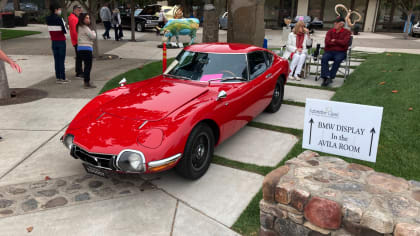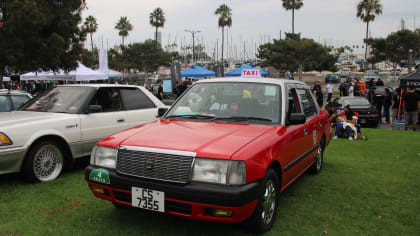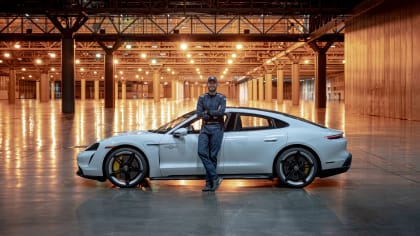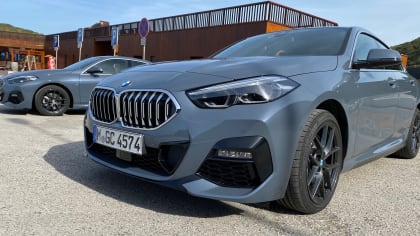Car Data Collection

What Information Does My Car Gather and Where Does It Transmit?
A car has become a computer on wheels. With it comes the discussion of privacy.
By The Editors
Fri, Dec 15, 2023 10:59 AM PST
Featured image by Samuele Errico Piccarini.
Smart cars are fast becoming a widespread phenomenon across the world. North America, without a doubt, leads the way as it has a significantly higher concentration of technology-friendly residents. Also, with many top automobile brands on the continent, more R&D is happening here.
Smart cars have advanced technology like integrated AI in their engines and sensors. Technically, these electronic systems work with real-time data throughout. For example, there’s an array of tech-powered sensors, like engine temperature sensors or air temperature sensors, that control various mechanical and electrical components of the car.
Smart Car Data Collection
Data brokers are mainly unregulated, especially when industry practices are not standardized. Consequently, there are increased chances of data breaches and hacking of your personal data. In other words, your precious smart car can become your most potent antagonist in no time if enough is not done. There are other risks, too. For example, according to ExpressVPN, law enforcement agencies can keep watching your data and even produce the information in court.
The new-gen cars, ranging from a BMW to a Ford, cars today are WiFi-enabled, Bluetooth-connected, and CPUs-embedded. Depending on what the user has permitted and enabled, the smart automobile is collecting sensitive information. Smart cars today are akin to smartphones moving on four wheels.
The high-tech systems inside the vehicle continuously pick up data related to the various attributes of the ride and the driver. Sometimes, even personal details like biometric or locational details are also collected by the system, unknown to the driver. All this information is collected via connected devices and telematics.
An investigation by the Washington Post in 2019 on a 2017 Chevrolet Volt pointed out that the built-in systems were gathering data related to the location, contacts, and phone ID of the user. The system also collected data related to the braking style of the driver and sent it to General Motors, the maker of the model. The result: a data-collecting machine on the go - every single interaction with the vehicle is specific bytes of data, recorded by the car and saved by the car manufacturer.
So, what exactly is your car keeping a tab on? A few include:
- Picking the exact location.
- Tracking the vehicle’s movement through traffic and congestion.
- Tracking the driver’s driving behavior.
- Collecting the interior preferences of the driver and the riders.
- Biometric data of the rider and driver through fingerprints and face scans.
- Data from smartphones, tablets, smartwatches, and all other synced devices.
- Collating data from devices like Voice Recognition systems, external cameras, airbag systems, radio and streaming media, etc.
What Happens to the Data Collected By Our Smart Cars?
While intelligent vehicles enhance driving experiences, data privacy is a loophole that needs immediate attention. Did you know that around 68% of automobile manufacturers were categorized for “bad track record” when protecting user data? That’s what a study by the Mozilla Foundation says. Here’s what the Foundation mentions further:
- Mercedes-Benz revealed that the personal data of about 1.6 million customers were compromised by a third-party vendor in June 2022.
- A data breach on Volkswagen and Audi compromised confidential information about 3.3 million customers.
- Between 2013 and 2023, Toyota's data breach saw the compromise of personal data of about 2.15 million users.
While privacy policies bind car makers, the data generated by smart cars can find their way into the hands of government agencies like law enforcement agencies, marketing research companies, service providers, data brokers, social media, tech companies, etc. Of all of these, data brokers can go about using the data without the permission of the owners, which can lead to data compromise and misuse to a more significant extent.
Conclusion
Evidently, the need of the hour is stronger regulations for the smart car industry. However, the entire ecosystem of intelligent vehicles is complex, and traversing the same could be a big challenge for all involved. Some companies like Tesla offer owners the option of keeping their data confidential and opting out of data collection. However, it comes with the underlined warning that maintaining inaccessible data from the smart systems inside the Tesla can hurt the car’s functionalities, leaving no choice with the owner but to share their information.











